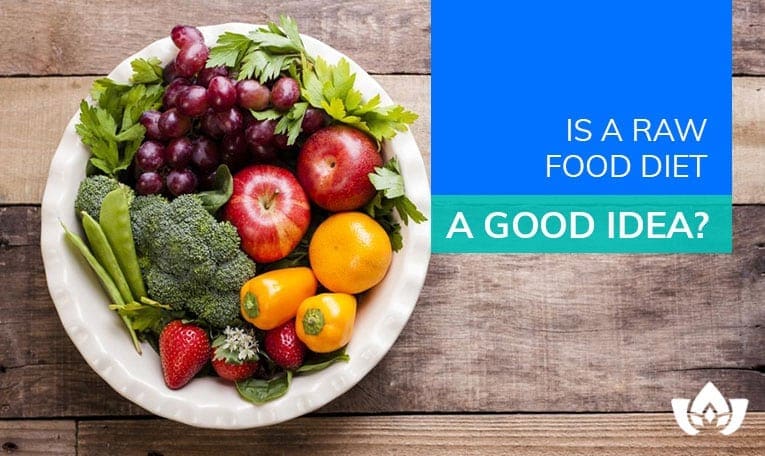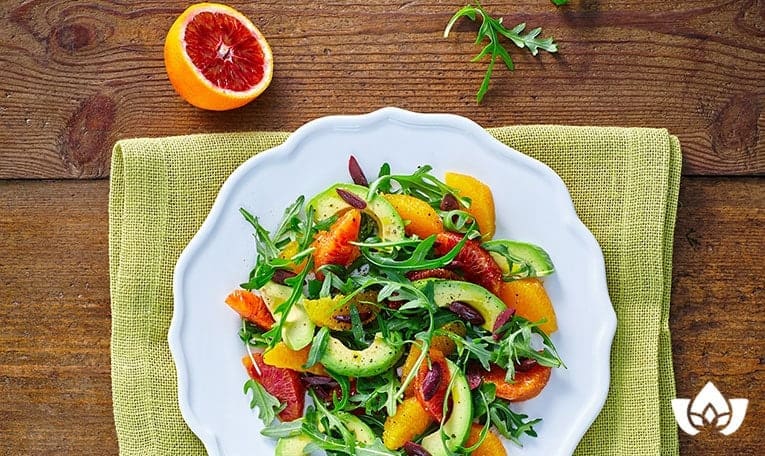
For many people, moving to a raw food diet has been not just a good idea but a great one.
It may be ideological, purely for health reasons, or an attempt at how to lose weight and keep it off.
Whatever the reason, though, it’s important to consider all the impacts a raw food diet can have.
Below, you can find out more about how a raw food diet works, but it’s also a good idea to book a nutritional counselling session to find out more.
What Is A Raw Food Diet?
In a raw food diet, seventy percent or more of the food you eat will be completely raw.
You can heat food to a certain extent – but only up to 118 degrees Fahrenheit (or 48 degrees Celsius).
Beyond this point, certain nutrients can be damaged in the process.
The majority of the raw food diet includes vegetables, fruits, nuts, seeds, beans and sprouted grains.
Benefits Of A Raw Food Diet
Let’s start by looking at the many benefits of a raw food diet.
Please note that although we’ve expanded below on some of the primary benefits, there are other benefits.
It can also be very good for your skin, the environment, and can help reduce your chances of getting certain chronic diseases.
1. It Focuses On Whole Foods
The average diet leans away from dairy, meat, and grain-dense foods.
When you drop these from your diet, what’s left are the whole foods, including vegetables, nuts, seeds, and fruits.
Broadly speaking, these foods can bring you most of the nutrients you need to stay healthy.
This diet also ends up being low in sugars, sodium, preservatives, and additives.
2. It Can Be An Effective Weight Loss Tool
A very common ‘side effect’ of eating a raw food diet that I hear from my patients is that they lose weight.
When patients start to eat whole, raw foods, they start getting high-quality calories.
Part of the reason we eat too much is because our bodies require the nutrients, and will keep us hungry until it gets what it needs.
If we eat foods with low-density nutrients, we will have to eat more to get what’s needed.
Meanwhile, eating high-quality calories means you’ll need fewer calories.
It’s a very pleasant side effect, as side effects go.
As a result, the raw food diet has developed a bit of a reputation for being an effective tool for weight loss.
3. It’s High In Fibre
Instead of getting fibre from breads and other fast food, you’ll be getting the fibre from more natural sources – which are often higher in fibre than their counterparts.
All that added fibre, in the form of fruits and vegetables, will help clean out your system, provide bulk to your diet and feeling fuller longer, and will help keep you comfortably regular.
4. It Retains Nutrients That Cooking Would Otherwise Destroy
That’s right – when you cook your food, you’re mostly destroying some of the most beneficial nutrients, or leaching them out into cooking water.
By protecting those nutrients, you’re obtaining more of them from the same amount of food, increasing the chances your body is getting what it needs from your meals.
In particular, vitamins A, C, D, E, K, and several of the B vitamins can be damaged by the process of cooking.
5. It Virtually Eliminates Processed Foods
Everyone knows that processed foods are bad for them, but it can be tough to keep away from.
Another factor is that we don’t truly listen to our body’s signals well enough, and instead of giving it what it’s actually wanting – whole, nutritious food – we are filling it with processed junk.
When you commit to a raw food diet, it necessitates dropping processed foods – however, many people find they don’t miss them once their diet transition is complete.

Drawbacks Of A Raw Food Diet
Of course, every change will have negatives as well as positives.
Part of making a wise decision for you is to look at the drawbacks as carefully as the benefits.
At The Mindful Healing Clinic, we stand for patient education, however, and want to be sure you have all the information you need.
1. It’s Highly Restrictive
Although there are more and more workarounds being discovered by raw food chefs, you just can’t get past the fact that everything you eat on this diet is essentially going to be uncooked.
The cooking process allows for many modifications in how the food is delivered, and such options will be gone.
It’s not just that juicy steak we’re talking about – items like tea and coffee will also be out of bounds, because of the roasting or manufacturing process.
Anything canned is also off the table.
2. It’s Hard On Your Digestive System
Some people have stronger stomachs than others, but the raw food diet can still surprise the hardiest.
One of the reasons is that the fibre you will get plentifully can lead to bloating and gas, in particular a specific type of fibre called cellulose.
The cooking process breaks these fibres down, which makes vegetables easier to digest.
Blending your food can also make these fibres easier to digest, hence why many raw vegans rely heavily on blenders.
3. Cooking Increases The Availability Of Some Nutrients
Now, while we largely retain the best nutrients by eschewing the cooking process, there are times when cooking actually improves the availability of a nutrient.
One example is tomatoes: when cooked, they have up to four times more lycopene.
By adhering to a strict raw diet, you won’t be able to acquire these nutrients in as great quantities.
4. It Increases The Risk Of Some Foodborne Illnesses
Although most people who follow a raw food diet are vegans or vegetarians, there are people who follow the diet that are not.
Yes, you can eat raw meat or fish, in certain situations, as well as raw milk, and other dairy products made using raw milk.
However, the heating process is beneficial for killing off bacteria.
By eating only meat, fish and dairy in their raw state, you’re more likely to be hit with a foodborne bacterium and fall ill.
5. It’s Difficult To Meet Some Nutrient Needs
Protein can be difficult to get in sufficient quantities when on a raw food diet, even if you still eat some limited meat or dairy.
Vegetable-based proteins commonly used by vegans are not all appropriate on a raw food diet, further complicating the issue.
Is A Raw Food Diet Right For You?
Everyone’s needs are different, and everyone has different constraints, so adjustments must always be made for those with considerations.
However, it can be a healthy diet, if followed correctly and if it matches your lifestyle.
Because the answer to this question really depends on each individual, it’s the reason any diet changes require medical check-in first.
As a naturopathic doctor in Mississauga, we are qualified to help you determine the answer for that.
Book An Appointment At The Mindful Healing Clinic
If you’ve read both the pros and the cons above, and you’re interested in trying out a raw food diet, we’d be very pleased to help you along your path.
Book an appointment with The Mindful Healing Clinic to get a qualified medical professional review your current health and make sure that you won’t be causing more harm than good.
We have the experience to help you find just the right diet and plan to help you achieve your health goals.
Until next time,
Dr. Maria Cavallazzi, N.D
Mindful Healing Naturopathic Clinic
Mississauga, ON L5M 1L7
(905) 819-8200
► https://g.page/MindfulClinicNaturopathic
Dr. Maria Cavallazzi is a medical doctor from Colombia where she practiced as a family physician for 8 years until she moved to Canada 16 years ago and became a naturopathic doctor in Mississauga.


